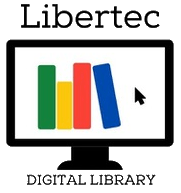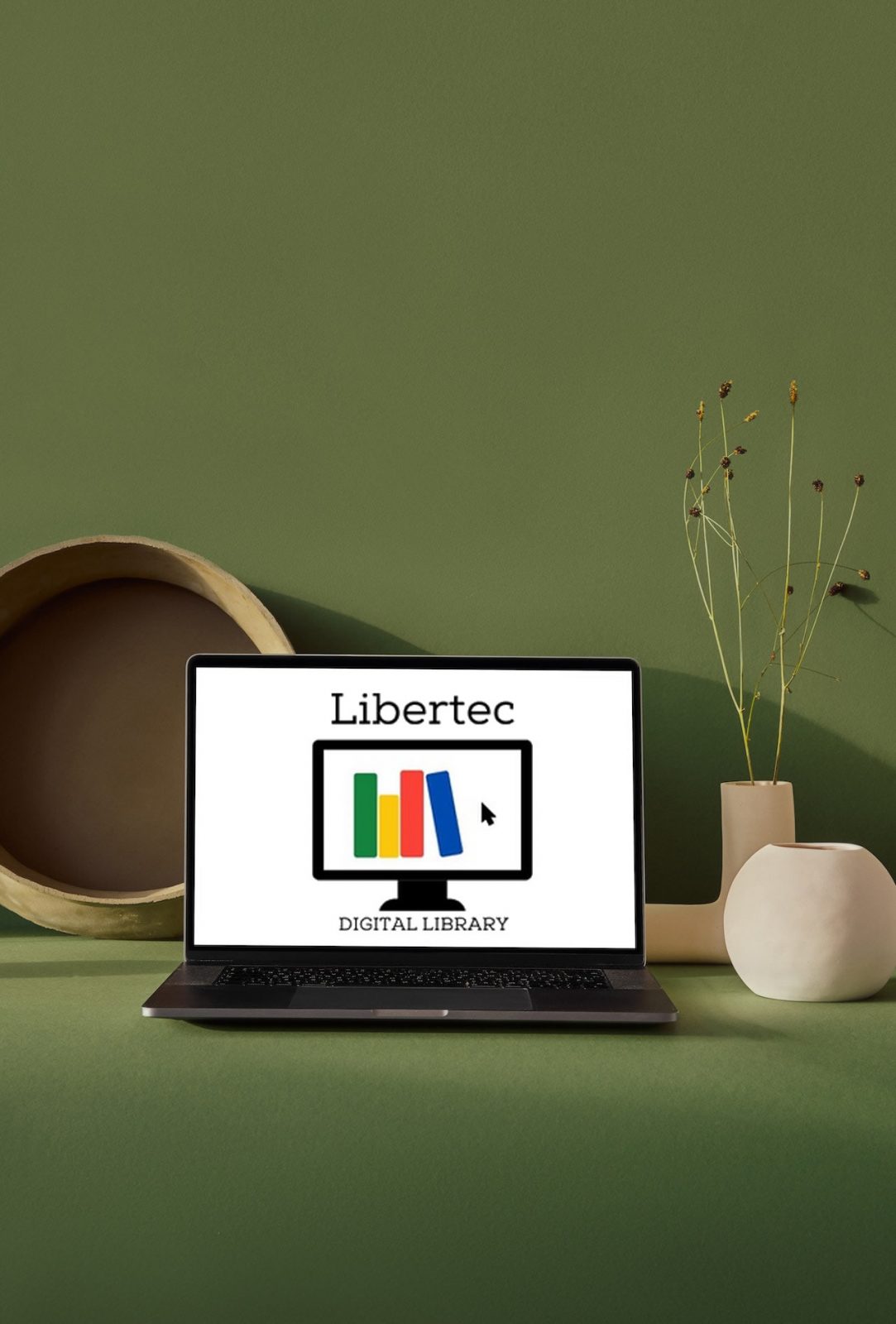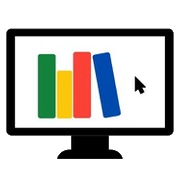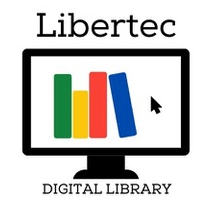2021-1-IT02-KA220-SCH-000031532
Libertec
LIBrary as online Educational Repository Techniques in European Community pre- schools
EU Programme ERASMUS PLUS KA2 Strategic Partnership for Innovation


Overview
The Libertec Project
The Libertec Project
Libertec is a project that aims to raise awareness of digital skills and patics in pre-school services from 0 to 6 years. The core idea is to try to identify and offer pedagogical documentation in a digitised way, as educational activities can be clear, transferable and easily identifiable.
LIBERTEC is the result of 3 years of scientific reflection and work on the issues regarding both high quality-inclusive ECEC and 0-6 Services modernization, that found in the recent Covid emergency a hastening trigger. The ECEC Services tackled the challenge launched by the pandemic to the whole Education system to rapidly adapt themselves, their daily routine and educational strategies, finding in ICTs useful solutions. Recurring to remote work and online meetings for the educational pool and the organization of distance activities (where possible) such as videos, readings aloud and songs for children accelerated the ECEC technological transformation: never as now the digital responsiveness of the 0-6 Services has been fundamental.
Therefore, being able to manage distance educational interventions and to carry out their pedagogical coordination thanks to high digitally skilled staff became indispensable, beyond representing an essential requirement to raise ECEC quality and inclusiveness. LIBERTEC wants to give a concrete response to this need through the development of a digitized pedagogical documentation system aimed to raise digital readiness, quality of educational and organizational
Services’ work, as well as their external relations’ efficacy
Overview
A Concept of Digitisation
★★★★★
The adoption of a digitized documentation system can support ECEC operators in their commitments, that are increasingly complex due to the steadily evolving educational methodologies, the updating of legislations and to the change of rules to manage and document daily work, that could require also remote-work. An effective and standardized documentation, especially if digitized, can become a methodological and pedagogical strength for the Services as it allows to organize/save files and materials to make the data collection-storing a norm.
Internal procedures, educational strategies and activities and all the useful materials can be easily catalogued, systematized and made quickly transferable and usable in daily work by educators and pedagogical coordinators, giving to all the internal operators the same working structure and contents. Concerning the users, the families can be involved more transparently in their children school life through the effective access to clear pedagogical documentation, also enhancing mutual trust with the Service, while children can gain further opportunities to develop their social and cognitive skills.
Thanks to the digitized documentary practice – done e.g. by video-photos storing, educative products’ preservation, activities’ traceability- they will be able to recognize themselves and their daily life in kindergarten/preschool.
The entrance at systemic level of a standard digitized repository for management procedures and pedagogical strategies can also facilitate the institutional parts in a better work-checking and in controlling the accomplishment of the due
administrative requirements. High quality ECEC – together with the modernization of 0-6 Services – constitutes the ideal fil rouge of LIBERTEC as well as its main final goal.
Working on this theme means contribute to sustain social cohesion and inclusion dynamics through education since its earliest stages in several ways (e.g. they can serve as meeting space for families and contribute to develop children language competences, both in the Service’s language and first language).

Moreover, the Covid emergency relighted the public debate on importance of adequate and inclusive ECEC systems,revealing its consequences on children, family wellbeing and female employment. High quality Services can contribute to break the cycle of disadvantage among children (boosting also female employment) and to help them in acquiring/developing abilities whose benefits can be seen beyond childhood into later educational and life achievements.
Activities
Project Implementation
The project activities are conducted within the following overall project phases:
Activity and steps
Libertec wants to identify the guidelines for digitising the document chain in schools and services 0-6. The work of the project has several phases, which are summarised below:
- Mapping of the already used pedagogical practices of the partner schools.
- Qualitative analysis and focus goup to survey the digital practices already developed and to measure the level of digitisation of teachers.
- Exchange of pedagogical practices and the level of digitisation among the partners.
- Drafting of guidelines for proper pedagogical digitisation.
This work will be carried out by each partner and verified quarterly with both face-to-face meetings and online meting. Furthermore, in July 2023, an exchange between operators with in-presence training activities is planned.
Libertec
Project Objectives
Below we look in detail at the general and specific objectives of the project and how they can increase the quality of 0teaching in 0-6 year old schools and services.
Project objectives
While in ECEC there is a wide debate on issues such as routines and traditional or experimental pedagogy, we believe that discussing on correct pedagogical documentation is essential to pursue its high quality, especially if it entails to resort to ICT and –consequently– to provide educators adequate digital skills to deal with daily assignments. LIBERTEC aims to improve the quality of 0-6 Educational Services working on their modernization and on operators’ competences upgrade.
It will be done developing specific GUIDELINES (R1) reporting the best European educational practices for the 0-6 age range and an innovative model to perform the traditional documentation of daily pedagogical/management work. Through the LIBERTEC project, partners expect to:
1) Create the model for digitized pedagogical documentation
Create the model for digitized pedagogical documentation focused on standards and needs of school facilities for 0-6 children. The model will be drawn by specific GUIDELINES (R1) and a tailored package of digital competences for operators to perform the documentary task and to manage: remote team-work (if needed), possible distance educational activities and relations with families and third parties. The specific skills’ package will be designed taking into account the European Digital Competence Framework for Educators.
(DigCompEdu), to enable operators to: – effectively interact within the Services and with users (internal sharingtransferability, access, transparency, security/privacy); – use and/or design educative digital resources (according to features/limits and possible specific needs per each age group); – evaluate/adapt the educational strategies and/or the internal management procedures.
2) Sustain sharing of good pedagogical and management practices in use in partner
Countries aimed to early childhood (kindergarten, preschools, other services for 0-6 children) and promoting their highlighting, for a proper collection. The GUIDELINES – indeed – will be developed starting from the analysis of daily practices, already adopted by the partners, but not formally detected and recognized. These practices will be renewed by applying ICT potentialities and completed by the skills required to operators. R1 will have a strongly operational character, including a set of pedagogic and management tools, activities and strategies that can be applied by educators to improve their daily assignments, especially those referred to documentary task.
Three main activities are considered fundamental in EU early childhood schools:
1) Management of daily routines;
2) Definition of play/teaching spaces;
3) Pedagogical documentation. If the recognition and the mutual exchange on the first two issues will entail to highlight good educational practices that deserve to be shared, transferred and borrowed among ECEC organizations, the third represents the core aspect of LIBERTEC GUIDELINES.
The digitized documentation will be actualized through a proper Digital Library: a corporate secure system to store files that can be set, managed and updated in each Service – according to the single technological asset already in use – by trained operators. The Library will store internal procedures/daily activities, supporting an easy-safe access to official work tools and documents, also paying attention to adopt proper Blockchain technology. All the achieved results will be put at disposal of all the institutions/organizations and professionals working in ECEC thanks to free OER, available from a specific website devoted to LIBERTEC (as well as from those of partner organizations). Concerning the specific pedagogical GUIDELINES’ contents a special regard will be
placed in giving relevance to all the social-emotional aspects connected with early childhood education because a full and rich educational experience can contribute to enable children to learn how to be empathic, learn about their rights, equality, tolerance and diversity, starting from the beginning of their school path.
Partner Organization & Location
Grădinița Prichindel Suceava
Suceava, Romania
Cepiss Coop
Scandicci, Italy
Centro Macchiavelli
Florence, Romania
Schools
News
The first news letter of the Libertec Project has been sent out. The news letter aims to promote the project. In fact, each partner sent the news letter to a minimum of...
Yesterday, the focus group on didactics and educational spaces in 0-6 took place. A quantitative survey and interviews with parents will follow by October. The first...
Scheduled TPM
| id | Meeting Title | Leading Organisation | Country of venue | Date |
| 1 | Kick-off | Cepiss and CM | Florence, Italy | May, 2022 |
| 2 | TPM | AJEDJ | Lisbon, Portugal | December, 2022 |
| 3 | TPM | UMA and Pinolivo | Malaga, Spain | July, 2023 |
| 4 | TPM | Grădinița Prichindel | Suceava, Romania | October, 2023 |
| 5 | TPM – Final Conference | CEPISS and CM | Florence, Italy | June, 2024 |



